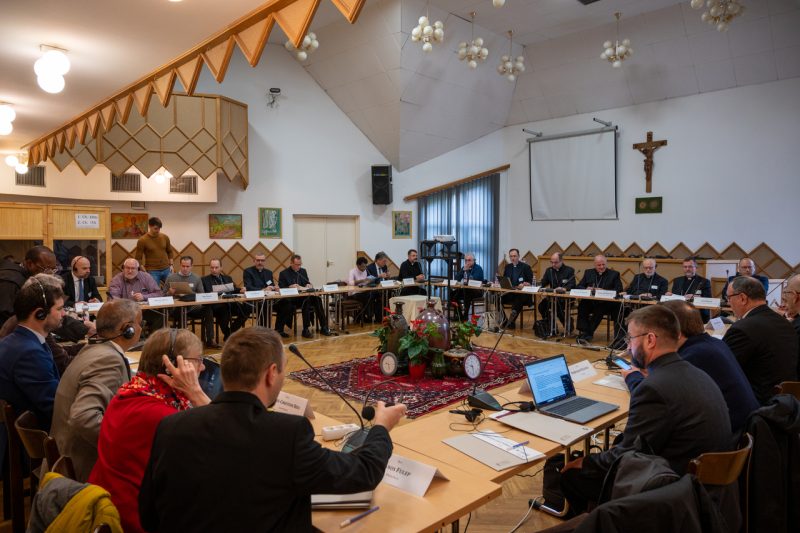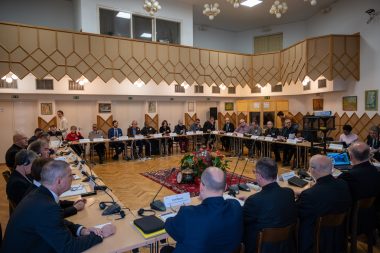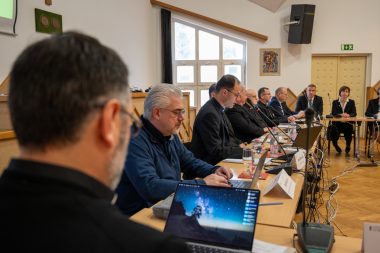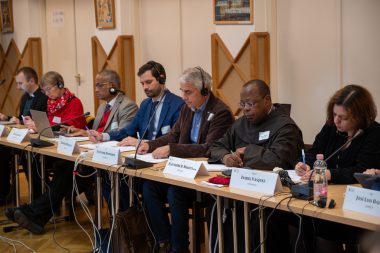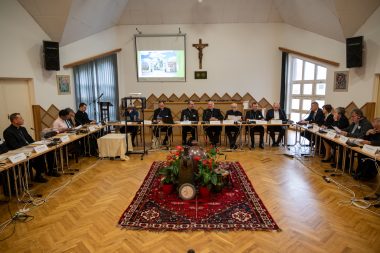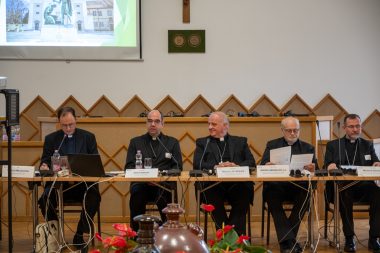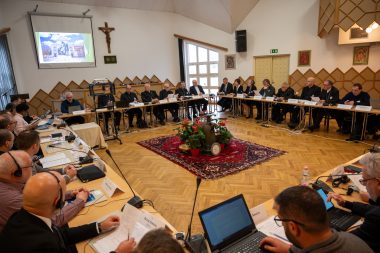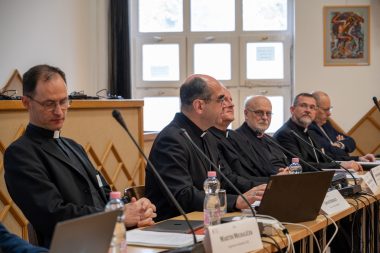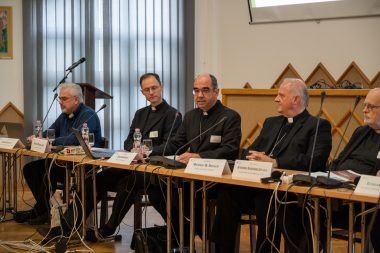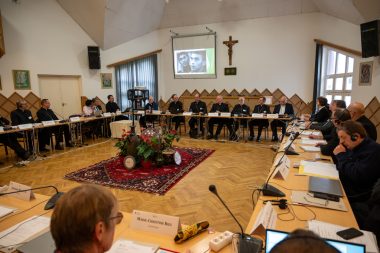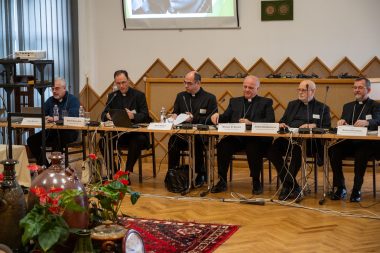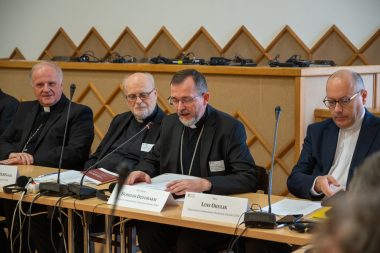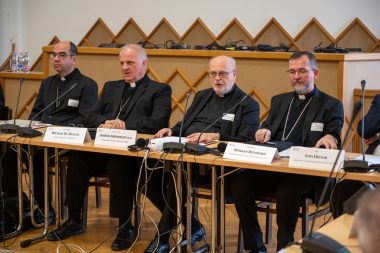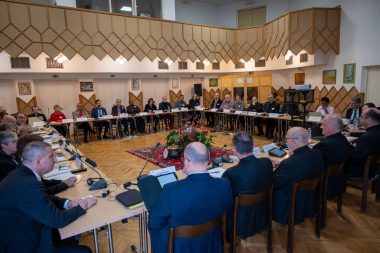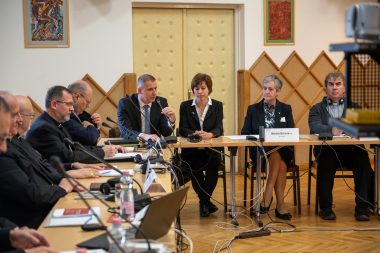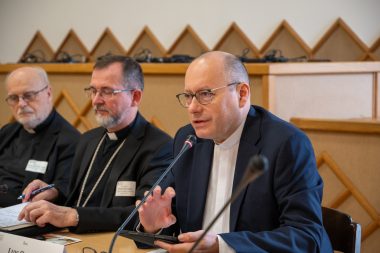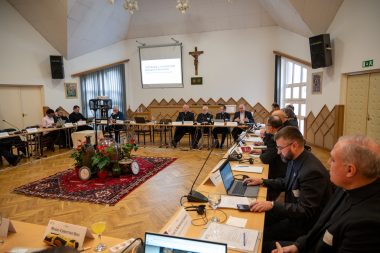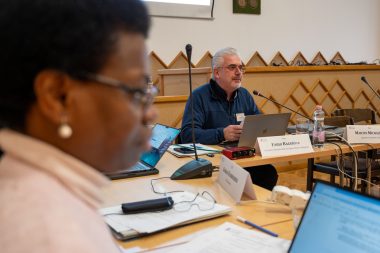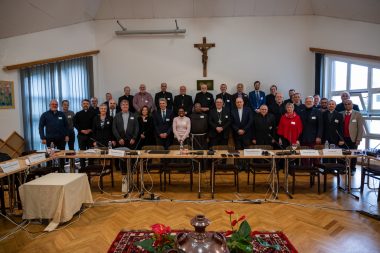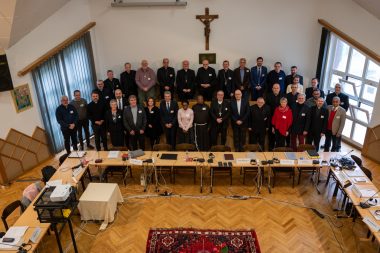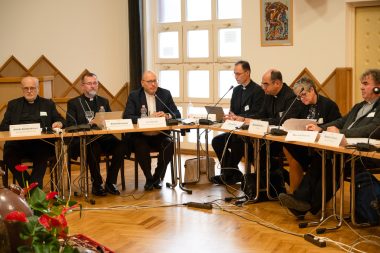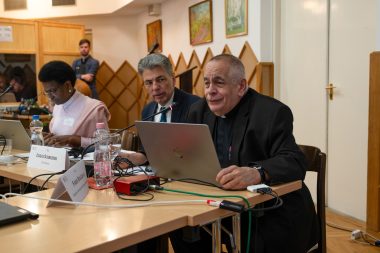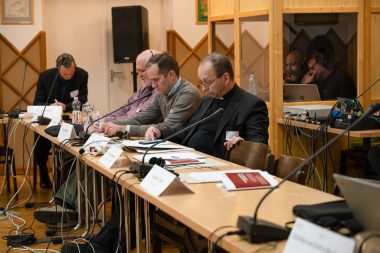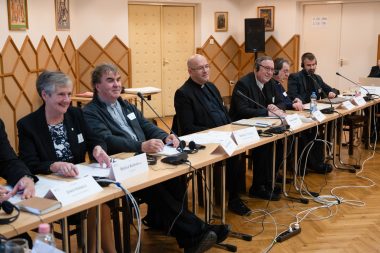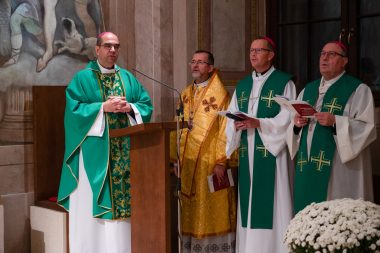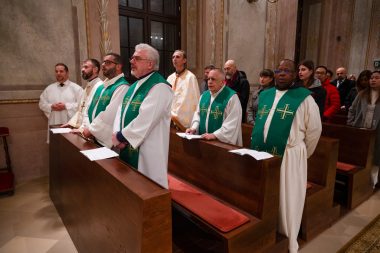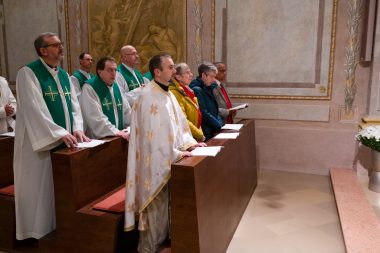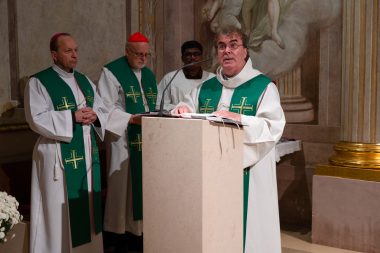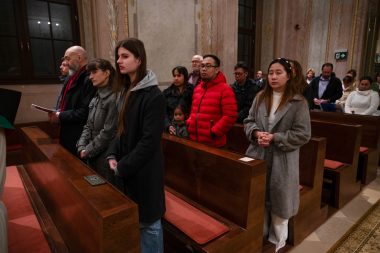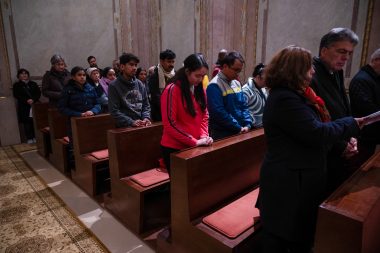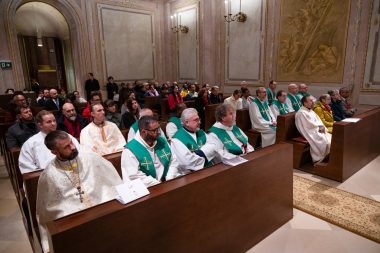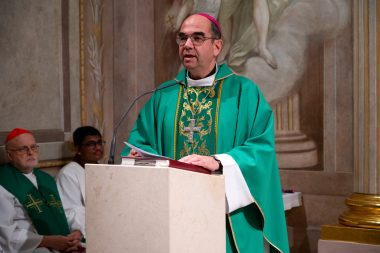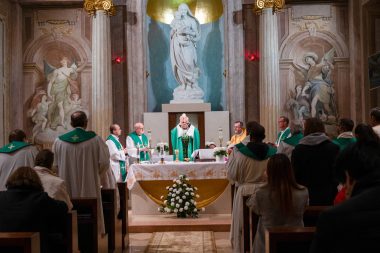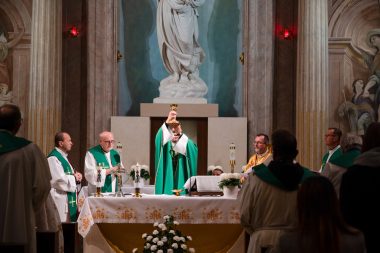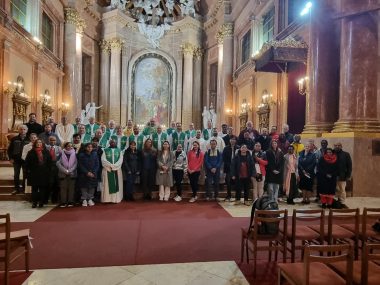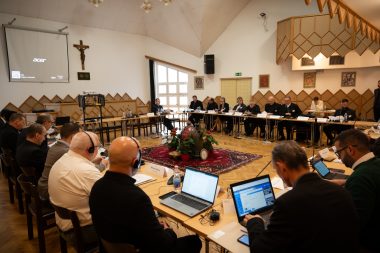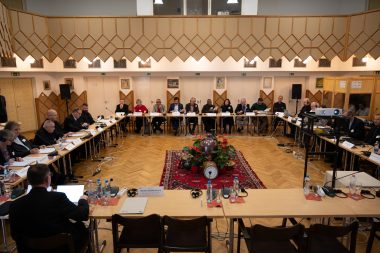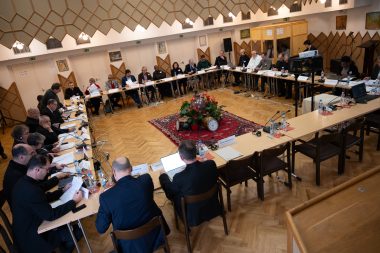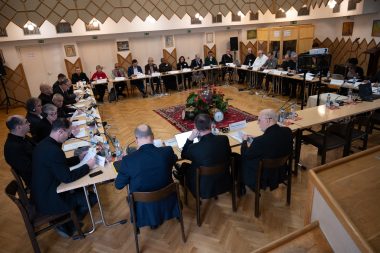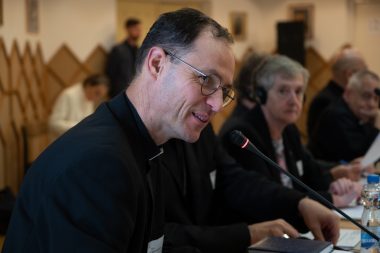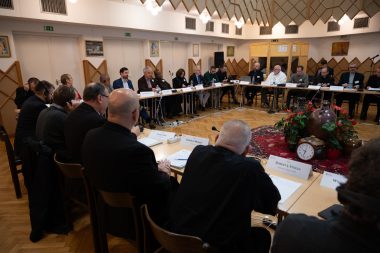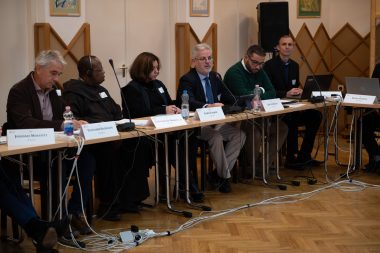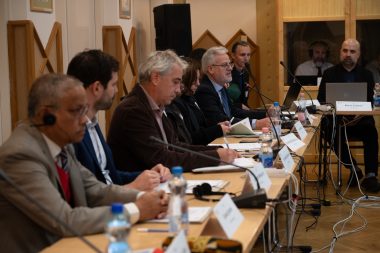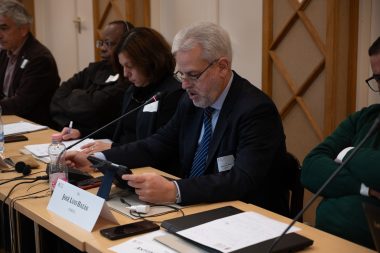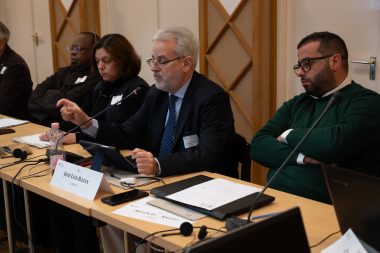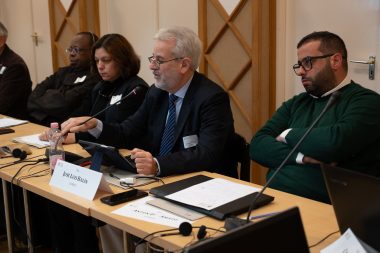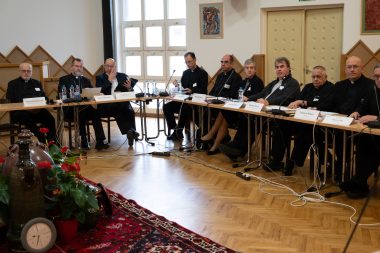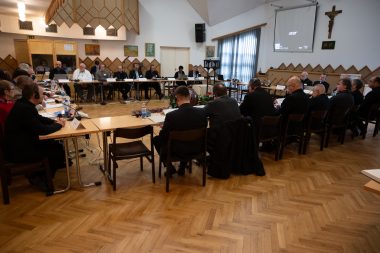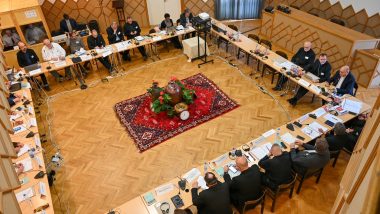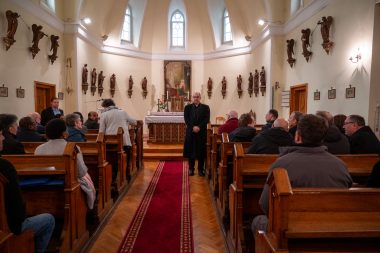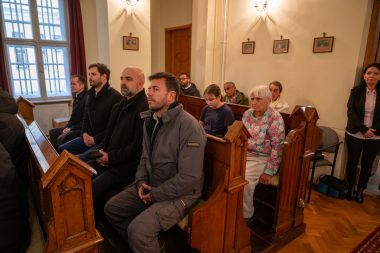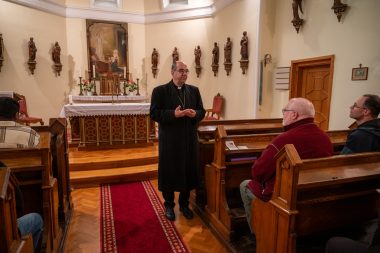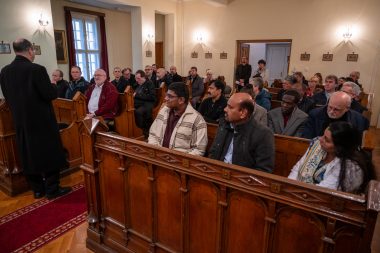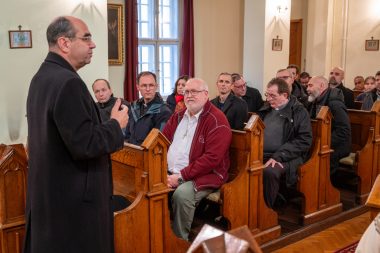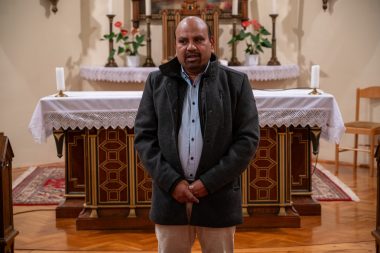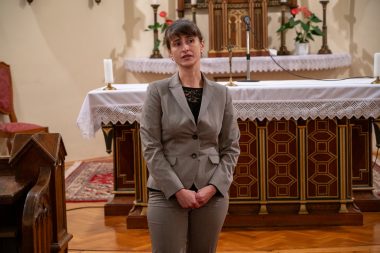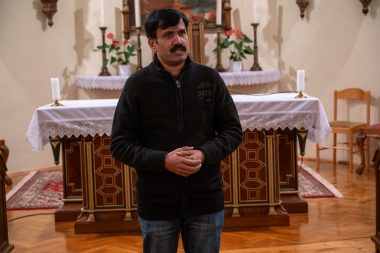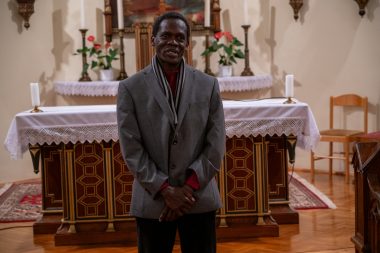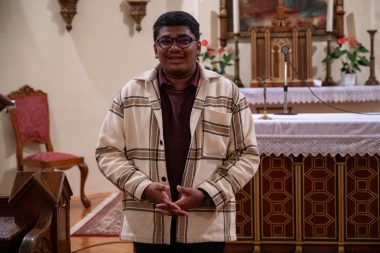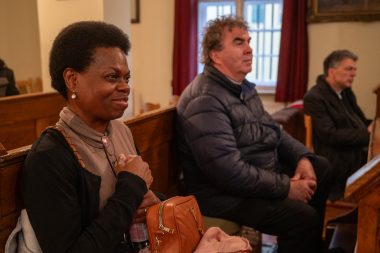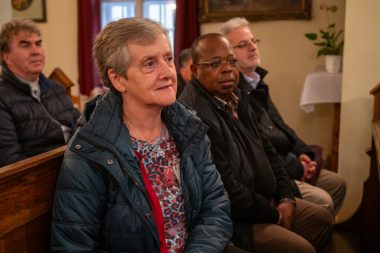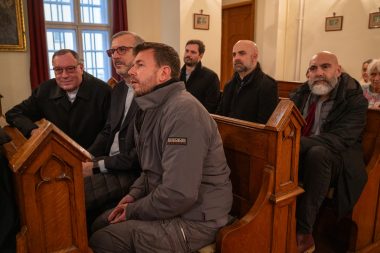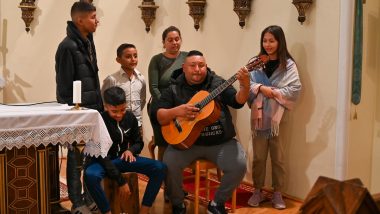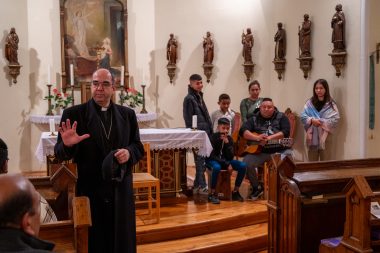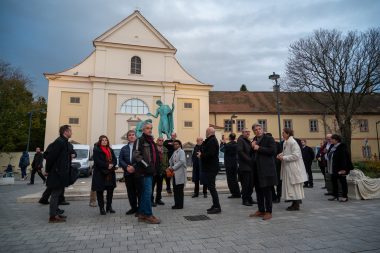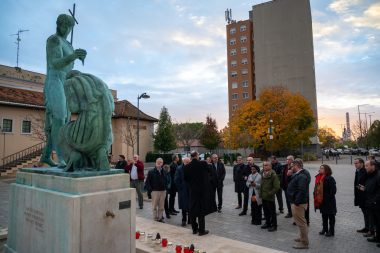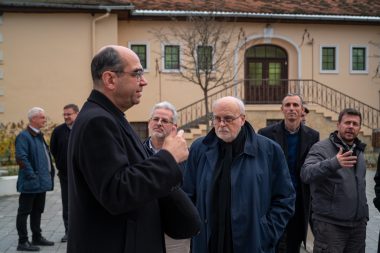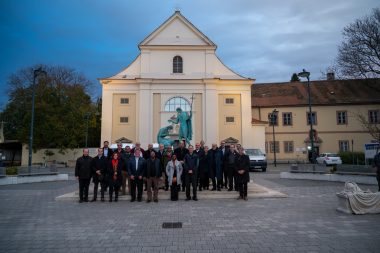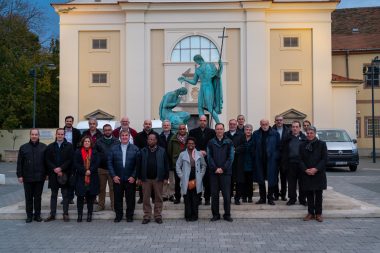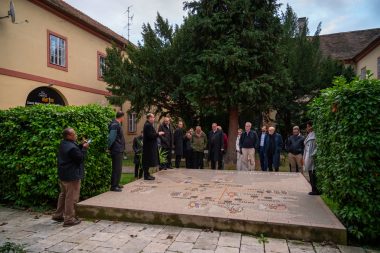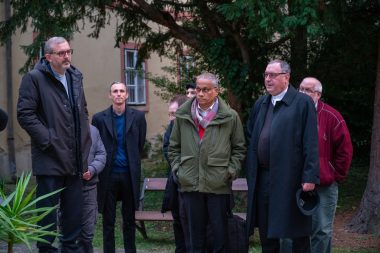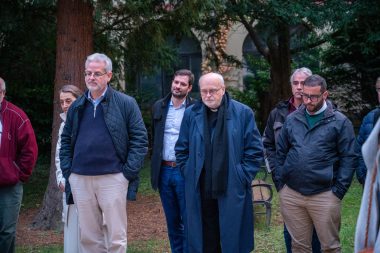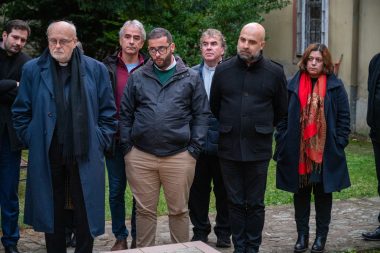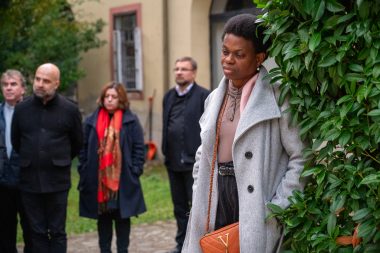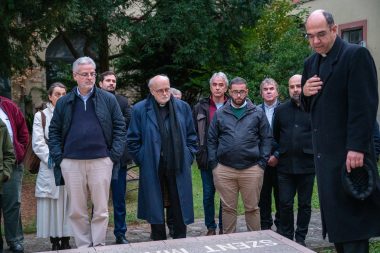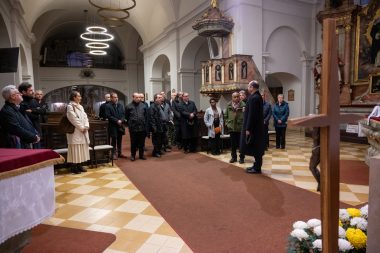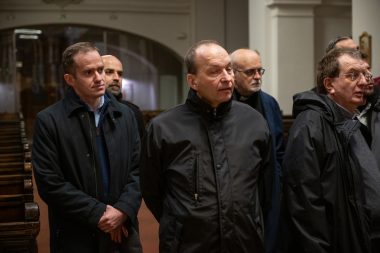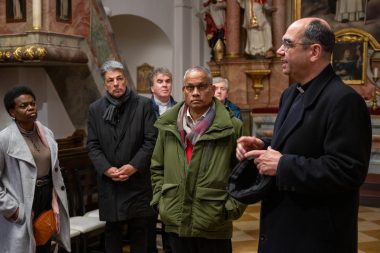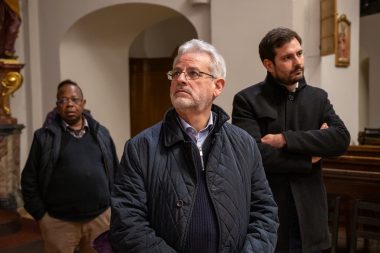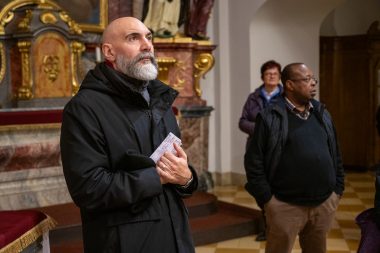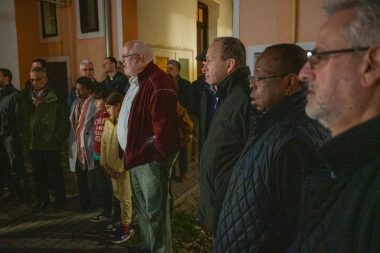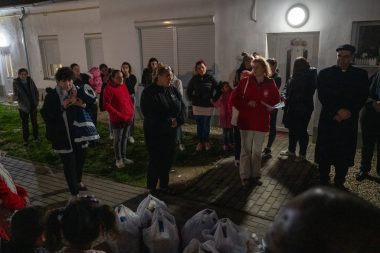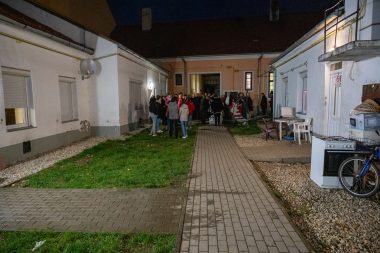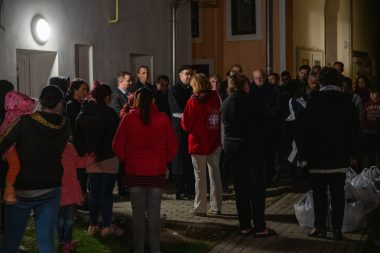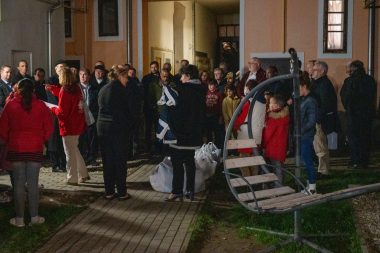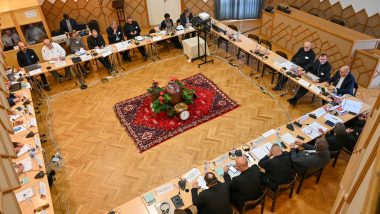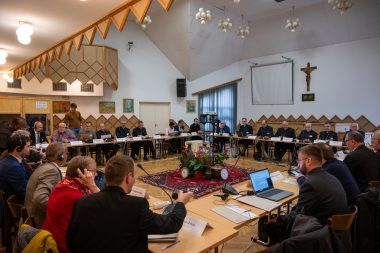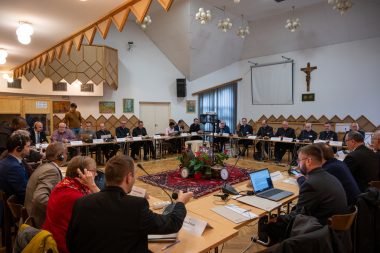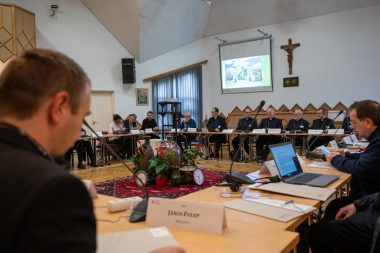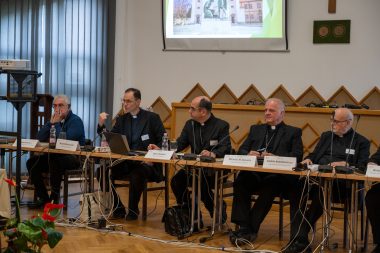From 12 to 14 November, the meeting of the Migration and Refugee Section of the CCEE Commission for Social Pastoral Care was held in Szombathely (Hungary).
The theme of the meeting was “Free to choose whether to migrate or to stay”, proposing an in-depth reflection on the meaning and possibilities of freedom when deciding whether to start a migration journey or to stay in one’s own land, as Pope Francis envisaged in his Message for this year’s World Day of Migrants and Refugees.
The proceedings were opened by the members of the Commission for Social Pastoral Care: Archbishop Bohdan Dzyurakh, Exarch for the Ukrainian Greek Catholic faithful in Germany and President of the Commission; Card. Anders Arborelius, Bishop of Stockholm and Head of the Migrants and Refugees Section; the Bishop of the Diocese of Szombathely and Head of the Social Pastoral Section of the Commission, H.E. Msgr. János Székely. Their speeches were followed by words of greeting from the Apostolic Nuncio to Hungary, H.E. Msgr. Michael Wallace Banach, and words of welcome from the mayor of the city of Szombathely, Dr. Nemény András.
In his report Prof. Aldi Skoda, Professor of theology at the Pontifical Urbanian University in Rome, presented the main lines of reflection on the topic. Starting with a consideration of the demographic aspect of migration, which according to recent data mainly involves young people, Prof. Skoda reiterated the essential and necessary elements for a correct pastoral approach. He took stock of the consequences of misinformation and the risk posed by the political and ideological use of migration. He then listed some of the devastating consequences of illegal channels of migration and the role of organised crime. A wound of our time is the social and anthropological stigma of migration, which leads to forgetting that each person who migrates has a history, an originality, a personality of his or her own. To the invitation to move from ideology to theology in facing the challenges of migration, Prof. Skoda added the need for a greater commitment to rediscover the relational and qualitative nature of the encounter with people, whether migrants or refugees, in order to overcome fears and make fraternity prevail, which will build strong and welcoming communities.
Following this, Fr. Fabio Baggio, Under-Secretary of the Dicastery for Promoting Integral Human Development (Vatican), presented the many initiatives of study and concrete intervention promoted by the Apostolic See, many of them with the direct involvement of Pope Francis, who invites the building of the future with migrants and refugees. Fr. Baggio insisted on the need to promote a more human and constructive attitude towards migrants and refugees, rediscovering the link between migration and development. Finally, he pointed out several aspects of the pastoral care of migrants that have been deepened on the path of synodality experienced by the Catholic Church.
The international overview of migration was given by Msgr. Robert Vitillo, General Secretary of ICMC (Geneva). In his presentation, Msgr. Vitillo pointed out some of the challenges that are being faced internationally due to a rise in secularism and, therefore, a growing rejection or mistrust of the work of Catholic-inspired bodies. Therefore, he praised the availability and generosity of so many highly qualified people who continue to work in favour of migrants and refugees internationally, bringing a message of hope and trust through their work.
The national directors for migration at the various European Bishops’ Conferences presented their reports, illustrating the many commitments made at local level and reaffirming their determination to face today’s challenges with renewed commitment.
The meeting concluded with a visit by all participants to a refugee home run by the diocese of Szombathely, as well as to some homes of people belonging to the Romany ethnic group. This was followed by a pause for prayer at the birthplace of St Martin.
Photos: Mr. Peter Molnar

